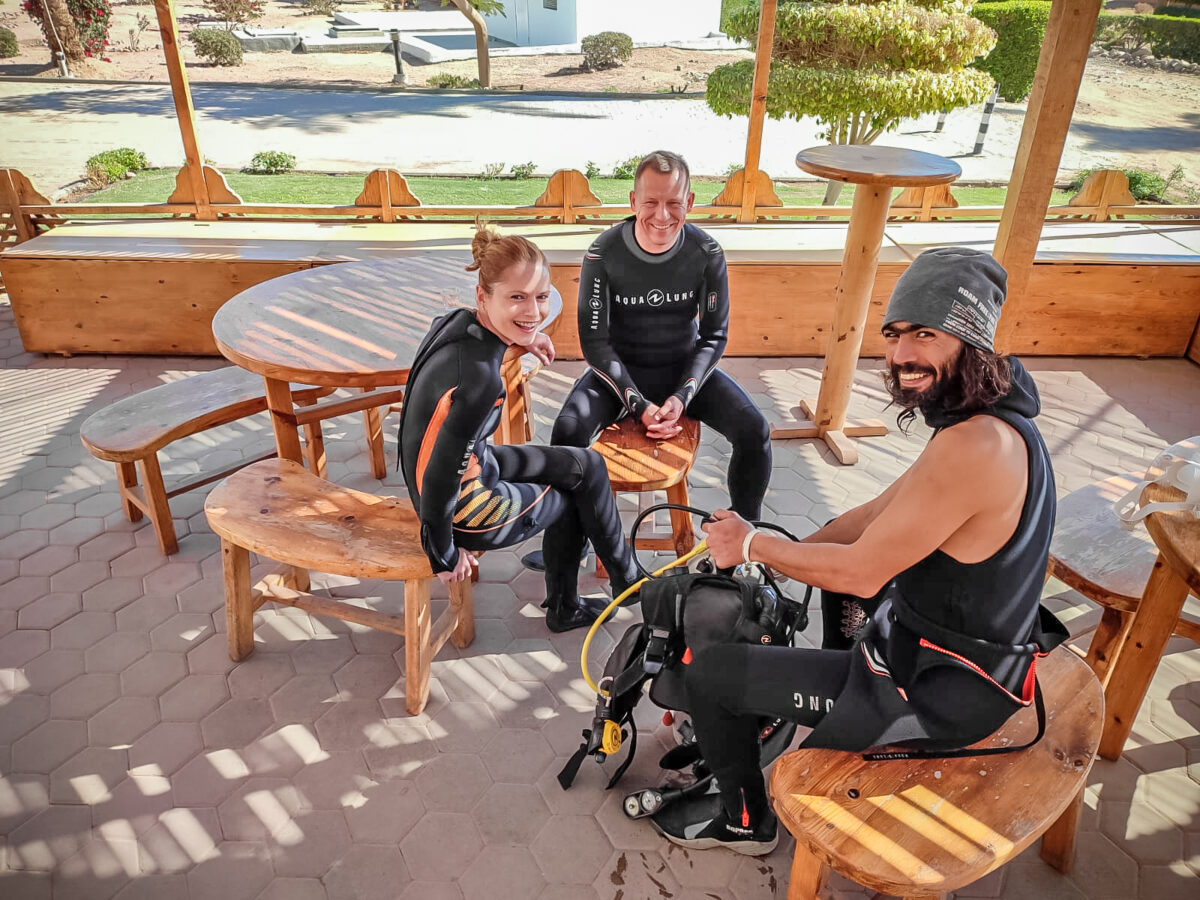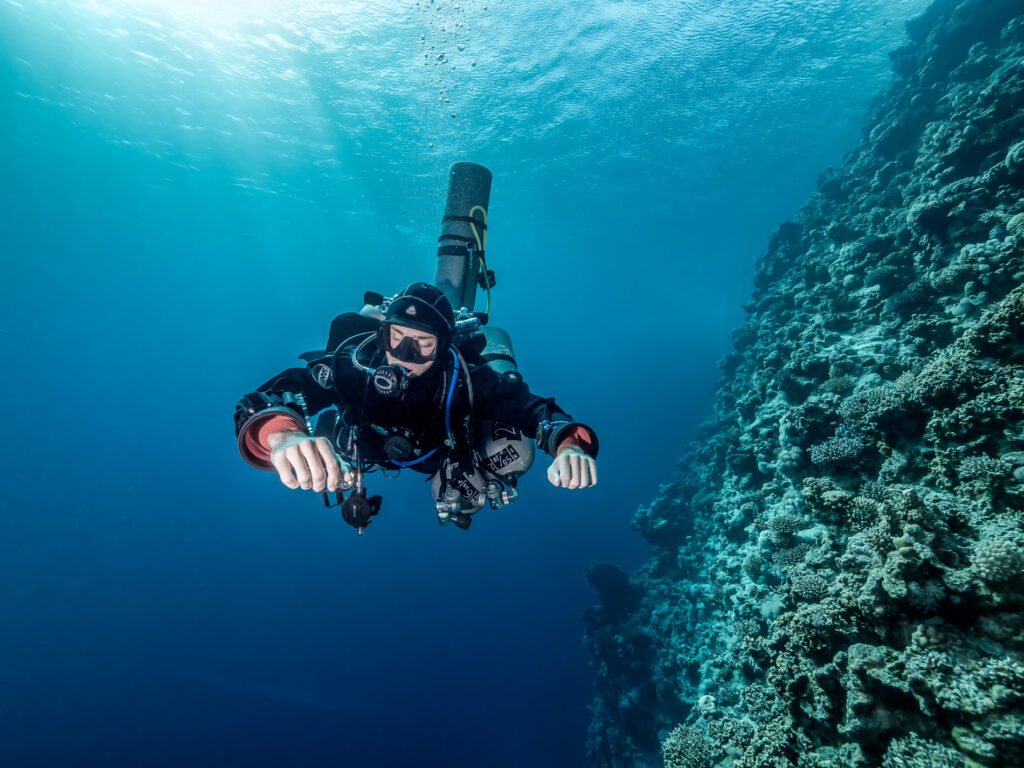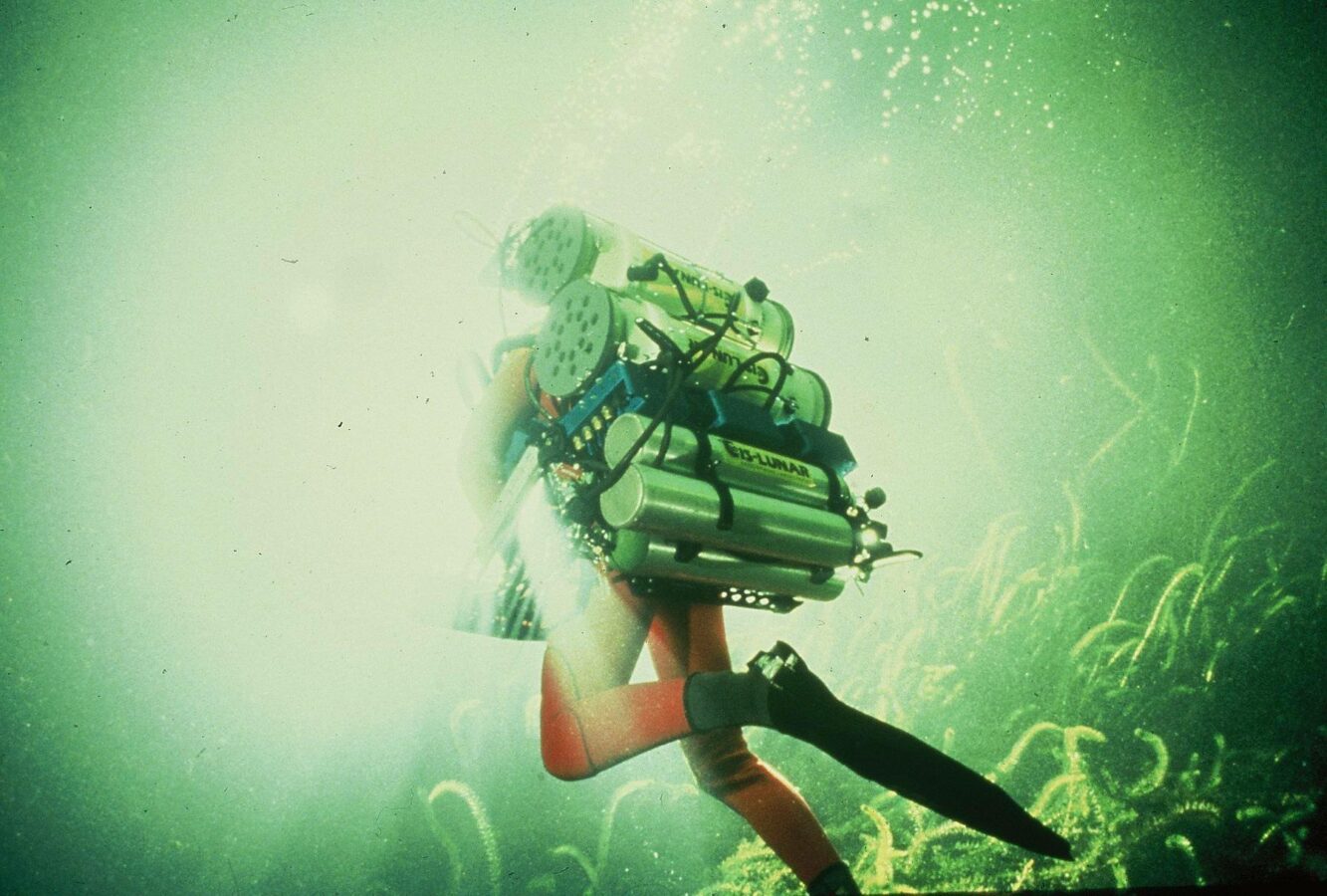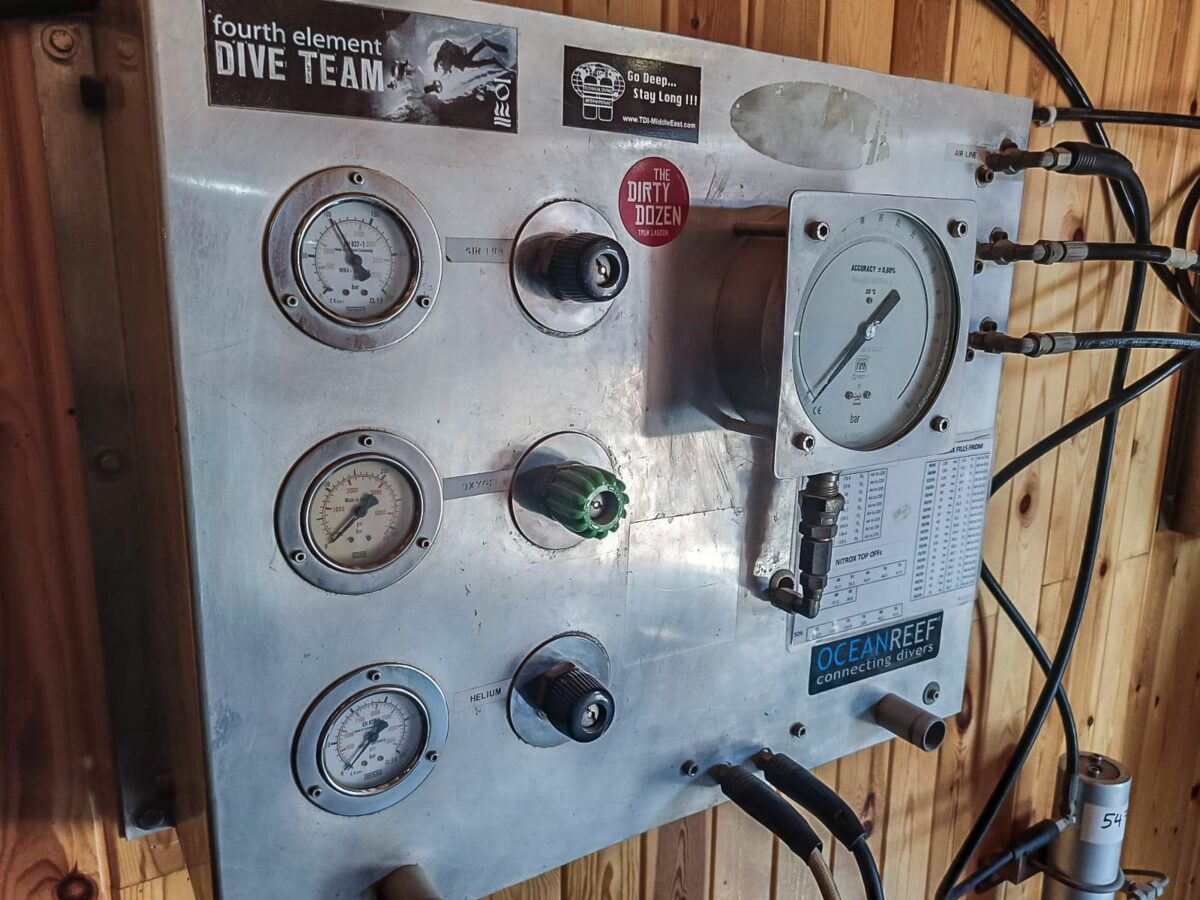Divemaster vs Tec Diver: Finding Your Next Step
You’ve completed your Rescue course, have a number of divers under your belt, and are looking for your next challenge and you are not sure if you should become a tec diver or do your Divemaster course? If this describes you, then you’re not alone.
For many divers, there comes a time in their development when they consider becoming a divemaster.
But this isn’t the only option. If you don’t plan on working in the diving industry, then a tec diving course might just be what you’re looking for.
Become a Divemaster
First things first: what is a divemaster?
The divemaster course is the first professional qualification level in the diving industry. It certifies you to assist with diving courses, lead groups of certified divers independently, teach some non-diving specialities, and assist with introductory dives. On top of this, you’ll learn the ins and outs of how dive centres operate.
If you want to become an Open Water Scuba Instructor (OWSI) in the future, then being a divemaster is essential. Not only is the divemaster qualification a prerequisite for the OWSI course, it’s also where you learn the fundamentals of caring for and managing groups of inexperienced divers. Additionally, experience assisting with courses and introductory dives also makes you an ideal candidate for an instructor course.

Divemaster Skills Development
So, what new skills will you learn in a divemaster course?
Firstly, you’ll re-learn all the skills you’ve covered in courses up until now, from your Open Water to Rescue course. However, you’re not simply re-learning how to perform these skills – you’ll learn how to demonstrate these skills.
You’ll spend a good chunk of time in confined water practising the basics of Open Water and Rescue skills until you can do them blindfolded, backwards, upside-down, and in your sleep!
This creates a strong basis for you to progress onto your instructor course, and allows you to help your future students better.
On top of this, you’ll learn the fundamentals of managing, organising and guiding certified divers. This is a key skill that will develop simply with time spent in the water, often after the course. From dive briefings and dive site mapping projects, to emergency planning, this is a key component of the divemaster course.
You’ll also develop your knowledge of environmental factors, physiology, physics, and decompression theory history, among other topics.
Become a Tec Diver
So, if that’s a divemaster course, then what’s a tec diving course?
To answer this, we first need to know what technical diving is.
Technical diving refers to any dive in which you have a ceiling. Having a ceiling is a way of saying that you can’t make a direct ascent to the surface. For example, a ‘hard’ ceiling like a cave or wreck, or a ‘soft’ ceiling like a decompression obligation.
When people talk about becoming a tec diver, they usually mean completing the entry level tec course. This course allows you to make dives to 40 metres, using one decompression gas, with a limited decompression obligation. With SSI, this is the Extended Range Nitrox Course.

Anatomy of a Tec Diving Course
You’ll start off your technical diving course by:
- Becoming familiar with the tec equipment configuration
- Learning the fundamental skills a tec diver should know
Good entry level tec courses usually have their students first complete a foundations course. Here, you’ll refine the basics of trim, buoyancy, team diving, and propulsion techniques, in your configuration of choice.
This creates a strong groundwork of skills that allows you to safely continue with deeper, more complex dives.
From here, you’ll learn to deal with emergency situations, such as:
- Out-of-gas scenarios
- Valve shutdowns
- Rescue scenarios
- Other equipment failures
Once you’re comfortable with these fundamental skills, you’ll progress to simulated decompression dives, developing your ability to plan a dive and execute the plan.
The final step is performing actual decompression dives, combining fundamental skills and emergency scenarios, making you a solid, reliable technical diver.
In addition to in-water development, you’ll also complete extensive knowledge development sessions. You’ll learn the ins and outs of decompression theory, history, physiology, as well as hone your knowledge of dive physics.
Divemaster vs Tec Diving Course: What’s More Challenging?
Earning your divemaster or tec diver qualification is an achievement to be immensely proud of! In both cases, you’ll enter an elite club of fellow divers, and deepen your knowledge and skills.
With both the divemaster and tec diver courses, the learning curves are steep. There’s lots to take in, hone, and apply. And more importantly, there’s lots of mistakes to be made and lessons to be learnt – that’s all part of the process!
For the divemaster course, you have a minimum of 4 weeks to complete it, although courses often run longer to enhance your development.
For a tec diver course, you have a minimum of 3-4 days to complete it, but your instructor may also add more days/dives depending on how you do.
The divemaster and tec diving courses are equally challenging in different ways. Learning to demonstrate skills, care and manage inexperienced divers, and assist beginners takes time and practice. Likewise, learning to use completely new equipment configurations, achieving perfect in-water skills and control, honing your dive planning skills and decompression theory knowledge, as well as safely conducting dives with overhead ceilings, also requires focus, time and practice.
Both are challenging – and both are immensely rewarding!

Divemaster vs Tec Diving Course: Pros and Cons
Now that we’ve talked about the basics of these two courses, let’s have a quick-fire overview of their pros and cons:
| Tec Diving Course | Divemaster Course | |
| Pros | Expand your depth and decompression limits Hone your buoyancy, trim, team diving and propulsion techniques Learn decompression theory and physiology in depth Learn advanced dive planning Discover multiple new equipment configurations Shorter time scale to complete | Qualify to assist with diving courses and introductory dives Be able to lead certified divers independently Progress to become an OWSI after Able to work and earn income at dive centres across the globe Increased managment and leadership skills Knowledge development opportunity |
| Cons | Not a professional qualification that allows you to work for a dive centre | Little time dedicated to improving your skill level in challenging conditions Depth and decompression limits remain the same as before Longer time scale to complete |
Divemaster vs Tec Diving Course: Why Not Both?
Being a divemaster and being a tec diver are not mutually exclusive.
Newsflash: You can be both!
And in fact, some of the best divemasters out there are also qualified tec divers.
Why’s that? You may ask.
Tec-qualified divemasters combine the leadership, care and management skills of divemasters, with the precision, knowledge and in-water ability of a tec diver.
So if you’re wanting to become a divemaster, or already are one, then enrolling in a tec diver or foundations course would be a great way of upping your game and setting yourself apart from other candidates.
Concluding Thoughts
Choosing the right course for you – divemaster vs tec diver – is about figuring out your long-term goals. If you wish to work in the diving industry, or simply increase your leadership abilities, then a divemaster course is the right way to go. If, however, you’re looking for personal development as a diver, and to expand your limits, then becoming a tec diver is the perfect way to do so.
In either case, Lagona Divers can help you achieve your goals.
If you want to break into the technical world and explore the depths of the Blue Hole and other world-famous dive sites in Egypt, then Lagona Divers Technical can make that happen.
Likewise, if you’re wanting to kick start your professional career as a divemaster, then what better place to do so than where the sun never stops shining?!
Contact us today to make your next step in Dahab, Egypt!


